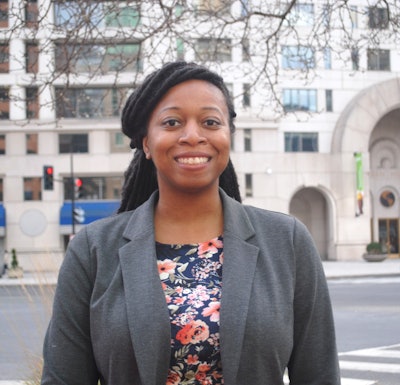The Association of Public and Land-grant Universities (APLU) and the Coalition of Urban Serving Universities (USU) have released a report examining the pandemic’s significant impact on food insecurity among college students. The report, “Food Insecurity at Urban Universities: Perspectives During the COVID-19 Pandemic,” also outlines steps institutions can take to more effectively address food insecurity. The project was funded by the Kresge Foundation.
The five participating universities were Morgan State University, University at Albany, University of Washington-Tacoma, University of New Orleans and University of Toledo. A group of 11 leaders from these universities identified potential questions to ask students, faculty and staff. Data was collected through focus groups, interviews and mixed-method surveys. A total of 296 individuals participated across the five institutions. An emphasis was placed on qualitative data.
“Now is the time to make systemic change,” said Dr. Christel Perkins, deputy executive director of USU, and assistant vice president of APLU. She is the principal author of the report. “Food is foundational to the way that we live. When we see the evidence that people of color and other marginalized populations are struggling with food insecurity…it really is our responsibility to address this.”
The report examines how students at urban universities experience food insecurity, the approaches used to mitigate it, how COVID-19 has changed the landscape, the impact food insecurity has on student success, the relationship between systemic racism and food insecurity and innovations that can be explored to address food insecurity.
Interviews revealed that students cut back on other personal necessities to address their food insecurity. One university identified that 89% of students surveyed said they eat less than they should because they lack sufficient food or money. 67% of students reported eating food that lacked nutritional value because they could not afford to eat balanced meals.
 Dr. Christel Perkins
Dr. Christel PerkinsStudents reported feeling a stigma around accessing a food pantry. Others noted that sometimes the food in the pantry was of low quality, so they didn’t eat it and stopped coming to the pantry. The report emphasized the importance of inclusivity and creating a sense of belonging for all students.
Dr. Sammy J. Spann, associate vice president and dean of students at the University of Toledo, said there has been huge surge in food insecurity since the onset of the pandemic. He said the input his institution brought to this study is how to rethink basic needs with strategic thinking. The university’s marketing team has been involved in destigmatizing access to food. This included changing the name of the food pantry to Rocket Fuel (the athletic program is the Rockets).
Staff and faculty at the five universities said they were aware of overt and covert signs that students are dealing with food insecurity and that this can lead to their academic work suffering. The report noted that some students work multiple jobs to pay for food and other necessities, which leads to missing classes or lack of concentration. The COVID-19 pandemic has exacerbated these situations.
“On the student affairs side, they’re typically the ones who have the most access to students,” said Perkins. “On the academic side it’s a little bit difficult. What we found in our study is that there’s this perception of faculty that, ‘I can’t ask my students about those personal things.’ It’s a faculty development concern or issue that has to be addressed,” she continued, adding that more holistic and well-rounded support net is needed for students.
Prior to the pandemic, University of Toledo introduced a pilot program in which the university partnered with its food service provider to recover unused food from on campus catered events and redistributed this to students in need via a meal alert system. The project exceeded 12,000 pounds of recovered food by the end of the pilot.
Spann said it has been a huge challenge to address food insecurity with so many students away from campus. One of the creative solutions has been partnering with local restaurants in Toledo. For every meal the university buys, the restaurants donate a meal. Students get meal vouchers to present.
“[Students] can go to one of these partner restaurants and get a meal,” said Spann. “This is for students who are local, but far away has been a challenge.”
The institutional leaders involved in this study used the data and their experiences to create nine targeted actions university leaders can take. Among these are increasing awareness, calling out systemic inequities, creating a culture of care, collaborating with the community, integrating other basic needs and advocating for change.
“In order to execute any of these recommendations, there has to be buy-in at the senior level,” Perkins said. “We realize that not every institution can do all nine of these and especially not in a particular given time.
“We hope that institutions would be able to start connecting some of the efforts that they are doing in silos to a larger strategic goal,” she added. “I hope that the report helps us to remember to center any ‘solutions’ that we think we have on the voices of students.”





















